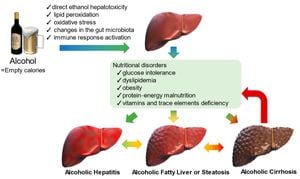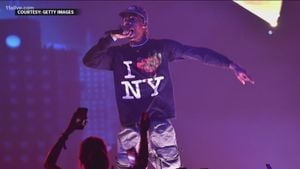On January 20, 2025, President Donald Trump made waves by issuing approximately 1,500 pardons and commuting 14 sentences related to the January 6th Capitol attack, including notable far-right figures such as Enrique Tarrio, the former leader of the Proud Boys, who received full clemency. The pardons and commutations, which come as Trump gears up for the upcoming presidential race, serve as part of his narrative positioning against the Justice Department’s prosecution of those involved on the day of the attack.
Tarrio, who was sentenced to 22 years—the longest term associated with the Capitol riot—was convicted of seditious conspiracy for his role in orchestration of the mob action on January 6, 2021. Although he was not physically present at the Capitol during the attack, prosecutors depicted him as directing activities and rallying the disgruntled supporters of Trump.
The commuted sentences included other leaders from the Proud Boys and the Oath Keepers—groups identified as significant players during the attempted insurrection. Stewart Rhodes, founder of the Oath Keepers, had his 18-year sentence shortened to time served. According to Trump, the pardons are not just symbolic gestures; he views those convicted as 'political prisoners' or 'hostages' and indicated these individuals were unjustly punished for their actions spurred by what he described as the rigged 2020 election.
At the Oval Office, Trump remarked, “This is a big one. We hope they come out tonight, frankly,” as he signed the proclamations. His actions mark not only the culmination of his commitment to grant clemency to the January 6 defendants but also reflect the increasingly polarized views on the events of the Capitol insurrection.
Responding to the clemency orders, many former law enforcement officials and political opposition leaders expressed outrage. House Speaker Nancy Pelosi called Trump’s pardons “an outrageous insult to our justice system,” stating, “It is shameful the President has decided to make one of his top priorities the abandonment and betrayal of police officers who put their lives on the line to stop the attack.”
The pardoned and those granted commutation were among nearly 1,600 individuals charged with crimes connected to the Capitol attack—a substantial event which involved thousands storming the Capitol, resulting in over 140 injured police officers and several fatalities.
Proud Boys were particularly emboldened following Trump’s remarks during the 2020 presidential debates, where he famously told them to “stand back and stand by,” which they interpreted as encouragement to act. The group has faced significant scrutiny following the riots, with many seeing the actions on January 6 as not just anti-democratic but as direct assaults on the institutional processes of the United States.
Reactions within Trump’s base saw some celebrating the reinstatement of their leaders. Members of the Proud Boys took to Washington streets, chanting for the release of their imprisoned colleagues, framing their situation as one of victimization rather than culpability. This juxtaposition highlights the stark divide within American society over perceptions of justice and accountability.
Trump’s clemency initiative is being viewed as one of his key strategies as he aims to solidify support among far-right groups, using the term ‘J6 hostages’ to garner sympathy and rally his base. He has repeated claims of election fraud and maintained his narrative of being persecuted alongside those accused of insurrection.
Legal experts argue this wave of clemency raises serious challenges to the rule of law and the integrity of the Justice Department’s efforts to hold accountable those involved in the violence at the Capitol. Investigators from the Department of Justice have highlighted how this insurrection was one of the most significant breaches of political norms and democratic practices in recent history.
Throughout the years since January 6, scores of lower-level participants have been held accountable, but the comity of higher-ranking figures brings questions about perceived immunity from the consequences of their actions. The fallout from Trump's pardons will likely continue to resonate within political spheres and the wider American public, affecting not only the involved individuals but also shaping the narrative as Trump begins another run for the presidency.



